25 Nov 2014 | ArtFreedomWales, Events
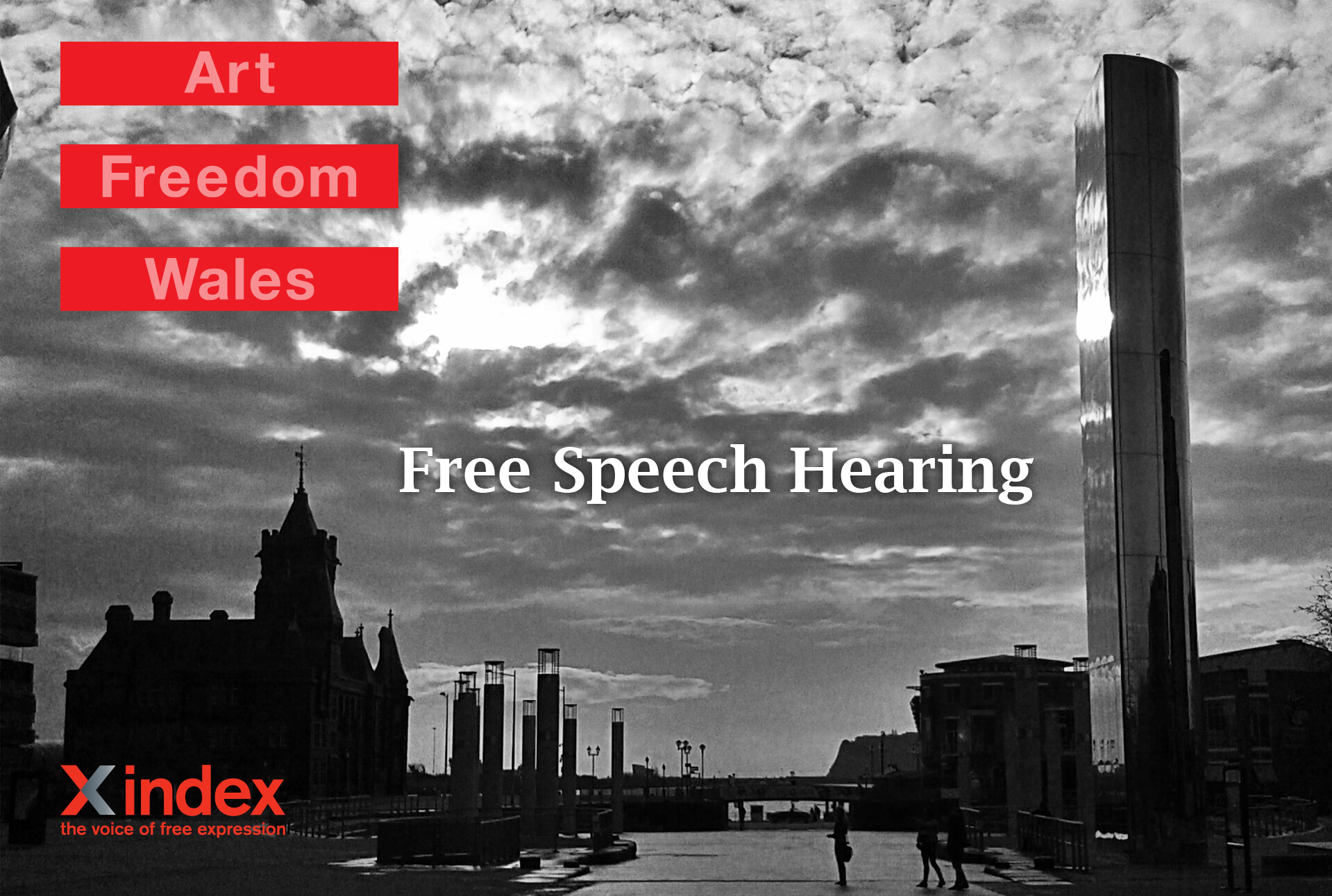
Following recent free speech hearings around the world – workshops exploring the conditions necessary for free expression to flourish – Index on Censorship is coming to Cardiff to ask the question: is Wales enjoying its right to artistic freedom of expression?
Some say yes — Wales has a proud cultural heritage, a vibrant bi-lingual arts scene and a closely-knit community. Others cite concerns — too few voices, too little access, complex linguistic battles, poor infrastructure, dwindling resource.
Join voices from across Wales to make your case, to reflect on the opportunities and obstacles and to consider whether Wales could be a world centre for artistic freedom of expression?
WHERE: Chapter Arts Centre, Cardiff
WHEN: Thursday 27 November 2014, 2.00-5.30pm
TICKETS: £5 (contribution towards costs) available here
#ArtFreedomWales
———————————————————————————————————————————————————
DRAFT PROGRAMME
2.00pm. Opening
– Freedom of Expression in Wales? Hear from the eyes of artists living in exile.
2.15pm. Evidence: Is Wales enjoying its right to artistic freedom of expression?
– Stories of opportunities, stories of obstacles – submissions invited and from the floor.
3.20pm. Taking Action: Working Groups
– Consider action around promoting Wales’ strengths and tackling Wales’ weaknesses?
4.30pm. Institutional Action: Plenary
– Reflect and deliberate on the afternoon’s discussion with a panel including
- Dai Smith (Arts Council Wales)
- John McGrath (National Theatre Wales)
- David Anderson (Museums Wales)
- Lleucu Siencyn (Literature Wales)
- Elen ap Robert (Pontio)
———————————————————————————————————————————————————
ONLINE CONVERSATIONS – #ArtFreedomWales –
Hangout 1. Artists Working In Wales (Click Here for Recap Report)
Hangout 2. Artists Working In Welsh (Click Here for Recap Report and English Translation)
Hangout 3. Young Artists In Wales
Sponsored by Arts Council of Wales and Western Power
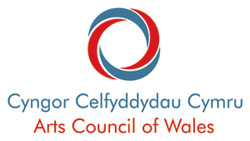

24 Nov 2014 | Azerbaijan, Azerbaijan News, Azerbaijan Statements, Europe and Central Asia, News and features
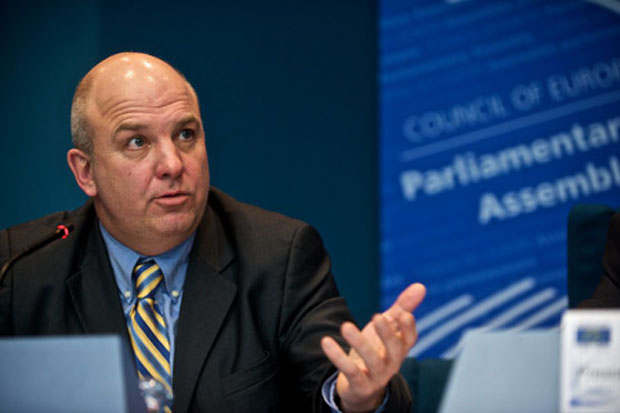
Council of Europe Commissioner for Human Rights Nils Muižnieks (Photo: Council of Europe)
I recently returned from one of the most difficult missions of my two-and-a-half year tenure as Council of Europe Commissioner for Human Rights. In late October I was in Azerbaijan, the oil-rich country in the South Caucasus, which just finished holding the rotating chairmanship of the 47-member Council of Europe. Most countries chairing the organisation, which prides itself as the continent’s guardian of human rights, democracy and the rule of law, use their time at the helm to tout their democratic credentials. Azerbaijan will go down in history as the country that carried out an unprecedented crackdown on human rights defenders during its chairmanship.
All of my partners in Azerbaijan are in jail. It was heart-wrenching to visit Leyla Yunus in pre-trial detention outside of Baku, Azerbaijan’s capital. Head of the Institute for Peace and Democracy, Leyla is Azerbaijan’s most prominent human rights activist and one of three finalists for this year’s prestigious Sakharov award, granted by the European Parliament. I do not know whether it was due to her cataracts or her emotional distress, but she cried throughout our half-hour meeting. The 58-year-old also has diabetes, Hepatitis C and kidney problems. She was in particular anguish for not having had the chance to see Arif, her husband of 26 years, for more than three months. He is also in pre-trial detention, despite having had a stroke just prior to his arrest.
The Yunus couple are among the brave activists in the region that have sought to promote dialogue with their counterparts in Armenia, a country with which Azerbaijan has been at war for the last 25 years over the Nagorno-Karabakh region, which was violently wrested from Azerbaijan as the Soviet Union collapsed. Arif and Leyla Yunus have both been charged with the crime of treason. Leyla regularly compiled lists of the country’s political prisoners for submission to international organisations. On October 24, the day I left Azerbaijan, a Baku court prolonged Leyla’s pre-trial detention for another four months.
Another difficult meeting was with Intigam Aliyev, one of Azerbaijan’s most renowned human rights lawyers, who is also in pre-trial detention for allegedly violating the restrictive provisions that make human rights work virtually impossible in the country. Until his arrest three months ago, Intigam was the co-ordinator of the Council of Europe’s legal training programme in the country. He was also legal counsel for dozens of cases against Azerbaijan before the European Court of Human Rights. When the authorities seized all of his documents, including the case files, he said he felt like the rug had been pulled from under his feet. He did not know how he could continue pushing the cases at the European Court or how he could defend himself. Again, the day I left Azerbaijan, his pre-trial detention was prolonged for another three months. When the judge announced his decision, Intigam nearly fainted.
I had a more upbeat meeting with Anar Mammadli, winner of this year’s Vaclav Havel prize, granted by the Parliamentary Assembly of the Council of Europe. Anar has already been convicted to a five-and-a-half-year prison sentence for violating the country’s cumbersome NGO laws (the formal charges were tax evasion, illegal entrepreneurship and abuse of authority). Anar was appealing his conviction and was in good spirits, despite the scant chances of success of his appeal. As one of the country’s most professional organisers of election monitoring, Anar had been harshly critical of several previous ballots in the country. Anar spends most of his time exercising and reading books on political science, philosophy and history. He wanted to know how from prison he could provide input to the Council of Europe’s efforts to assist Azerbaijan improve the legal framework for NGOs.
I also left heartened by a meeting with Rasul Jafarov, the head of an NGO called the Human Rights Club. Though he had had his pre-trial detention extended for another three months the day before I met him, Rasul was in good spirits. Rasul made a name for himself by organising a campaign called “Sing for Democracy” in the run-up to the holding of the Eurovision Song contest, which Azerbaijan hosted in 2012. He had planned to organise a new campaign called “Sports for Democracy” in the run-up to the holding of the European Games in Azerbaijan in 2015. Though he is charged with violations of the NGO law, as we bid farewell to each other, he related his plans to organise a human rights NGO among detainees.
While most of my partners are in detention, others discontinued their human rights work, left the country over the summer, or went into hiding as the crackdown spread. I visited one of the activists in hiding, Emin Huseynov, head of the Institute for Reporters’ Freedom and Safety, an NGO defending journalists in Azerbaijan’s restrictive media context. Though Emin is only 35 years old, he has very high blood pressure and an old spinal injury caused by an encounter with Azerbaijani police batons at an “unauthorised” demonstration a few years ago. Doctors who have examined him say he will not survive an Azerbaijani prison.
These are just some of the activists and journalists languishing in prison or under pressure in Azerbaijan. They are core partners for the Council of Europe – they have all attended roundtables for human rights defenders organised by my office or participated in events organised by the Parliamentary Assembly. The Council of Europe’s primary friends and partners in the country have almost all been targeted. While this pains me deeply, it also makes practical cooperation between Azerbaijan and the Council of Europe extremely difficult. The reprisals must stop. Now.
This article was originally posted on the Facebook page of the Council of Europe Commissioner for Human Rights. It is republished here with permission from the Council of Europe and the Council of Europe Office of the Commissioner for Human Rights.
24 Nov 2014 | Egypt, News and features, Politics and Society

Egyptian President Abdel Fattah El Sisi has tightened the screws of the country’s journalists. (Photo: Wikipedia)
In a rare show of defiance, hundreds of Egyptian journalists have objected to a “statement of allegiance” to the government signed by editors-in-chief of the main state-owned and independent newspapers.
More than 600 Egyptian journalists signed an online petition defending press freedom and rejecting censorship in all its forms. The move came in response to a loyalty pledge by 17 editors-in-chief of newspapers to refrain from criticizing the police, the military and the judiciary at this sensitive time when Egypt was “at war with terrorism.”
The journalists dismissed the editors’ statement as “a futile attempt to create a one-voice media,” arguing that “fighting terrorism had nothing to do with voluntary abandonment of freedom of speech.”
“The editors’ statement is not worth the ink used in writing it,” Dina Samak, deputy editor-in-chief of the English language semi-official Ahram Online and one of the journalists who signed the petition, told Index on Censorship.
“The terrorists will win when they can control the media, and the state will fall when it agrees on the same goal,” said Khaled El Balshi, a journalist and board member of the Journalists Syndicate, who helped draw up the petition for press freedom.
In a show of solidarity with Egypt’s military-backed regime, the editors had gathered at El Wafd newspaper headquarters on 26 October to forge “a united front against terrorism”, expressing their “rejection of attempts to cast doubt on state institutions.” They also vowed to take measures to halt what they called the “infiltration by elements supporting terrorism” in their publications — a reference to supporters of the outlawed Muslim Brotherhood, designated as a terrorist group by Egypt last year.
While the move did not come as a surprise to many — as it was already clear that the majority of media outlets had aligned themselves closely with the government since the military takeover of the country in July 2013 — the “loyalty pledge” by the editors was nevertheless unusual even in a country where the media was in lockstep with the regime.
The signatories to the declaration — the editors-in-chief of the three main state-owned dailies Al Ahram, Al Akhbar, Al Gomhouria and those of the independent Al Masry Al Youm, Al Watan, Al Shorouq, El Tahrir, El Ahali, Al Fajr , El Messa, El Esboo, El Youm el Sabe and El Gamaheer newspapers — argued however that “crisis situations” required “exceptional measures”.
Defending the editors’ statement, Emad El Din, editor-in-chief of the independent Al Shorouk denied that the editors’ loyalty declaration gave journalists the green light to practice self censorship.
“We wanted to deliver a message to citizens that the media is with the state in fighting terrorism,” he told NPR Radio shortly after signing the statement.
“At this time of heightened nationalism, the climate does not allow for any criticism of the government,” he added.
The move came in response to a call by President Abdel Fattah El Sisi for Egyptians to rally behind him in his fight against terrorism following two deadly militant attacks on an army checkpoint in North Sinai on 24 October that killed 33 army soldiers and injured at least a dozen others. The militant assaults were the latest in a string of attacks targeting mainly security forces — but at times, also civilians — since the overthrow of Islamist President Mohamed Morsi in July 2013. The attacks have prompted a surge in nationalism and a heralding of a so-called “war on terrorism” waged by the military against suspect-militants in the Sinai Peninsula. The violence has also resulted in a massive government crackdown on dissent that has targeted all opposition including journalists critical of regime policies.
Six journalists have been killed and dozens detained since the military took power in July 2013, according to the New York-based Committee for the Protection of Journalists. While most have been released, at least 11 journalists remain behind bars for no crime other than being at — or near — Muslim Brotherhood protest sites. Among the detained are three journalists working for the Al Jazeera English news network who have been sentenced to between seven and 10 years in jail on charges of “threatening national security, fabricating news and aiding a terror group”.
The crackdown on the media has led many journalists to practice self-censorship for fear of being imprisoned, killed or labeled “unpatriotic” by an unsympathising Egyptian public. Meanwhile, the statement released by the editors has fueled fears among press freedom advocates of a further shrinking in the already-dwindling space for freedom of expression in Egypt.
Adel Hamouda, an Egyptian journalist and former editor-in-chief of Al Fajr, meanwhile, criticised the editors’ statement as “uncalled for“.
“It is an attempt by the editors to win favour with the regime for the sake of personal gains,” he told Index. He explained that all Egyptians — except those supporting the Muslim Brotherhood — support the state in its war on terror so it is “meaningless” to publicly assert their support. He further noted that all media organisations were required to seek approval from the Armed Forces Morale Affairs Department before publishing or broadcasting any news about the military.
The majority of the independent media outlets that signed the statement belong to wealthy businessmen with close links to the ruling military-backed regime. They are fully aware that publishing any criticism of government policies would ruffle feathers and likely jeopardize their business interests. All top editors were appointed by the Higher Press Council shortly after Morsi’s overthrow in July 2013. Their selection was clearly based on their willingness to cooperate with the regime rather than their merits. Shortly after Morsi’s ouster, a leaked video on YouTube showed then-Defence Minister Abdel Fattah El Sisi asking senior generals to “establish partnerships with media outlets to curb any criticism of the military”. An independent journalist who spoke on condition of anonymity told Index that days before Morsi’s ouster, she had been approached by security officials who promised her “fruitful rewards” if she joined the “winning side” — a clear reference to the country’s powerful security apparatus that drove the uprising against the democratically-elected president.
In the coup’s aftermath, most editors and TV talk show hosts have persistently lionised Sisi and cheered on the military while demonising the Muslim Brotherhood, the Islamist group from which former President Mohamed Morsi hailed.
The media in Egypt has traditionally been a propaganda tool for whoever is in power. Various successive regimes have used the state media as a mouthpiece to further their political gains. Under Mubarak, all editors-in-chief of the state-owned newspapers were handpicked by his powerful Minister of Information Safwat El Sherif who presented the list of chosen candidates to the Shoura or Consultative Council, the upper house of parliament dominated by members of the then-ruling party, the National Democratic Party, for ratification.
In the months following the fall of Mubarak, there was a brief period of free expression and a loosening up of restrictions on the media. Press freedom — one of the major gains of the 2011 mass uprising — was short-lived however as the Supreme Council of the Armed Forces (SCAF) which replaced Mubarak, quickly moved to exercise control over the media. During its one year in office, the SCAF confiscated newspapers, ransacked the offices of foreign news networks and investigated journalists critical of the military. Shortly after Morsi won the elections — becoming the country’s first democratically elected president — he too reneged on his election promises to promote freedom of speech, appointing a Muslim Brotherhood member as minister of information. The Muslim Brotherhood-dominated Shoura appointed regime loyalists as senior editors of state-owned dailies, repeating the Mubarak-era practice that allows tight government control over the media. The move provoked an outcry from non-Islamist journalists who held protest rallies and threatened to resign their posts.
Almost immediately after Morsi’s overthrow, all Islamist-leaning newspapers and TV channels were shut down by the new authorities — a move that sent a message to journalists that there was little tolerance for dissent in Egypt, post-3 July. The last sixteen months have seen a return of the media censorship reminiscent of that which prevailed under Mubarak. Newspapers that published articles deemed “controversial” by the authorities, have been pulled off newsstands and confiscated. In October 2014, a print edition of the independent Al Masry Al Youm was confiscated by government censors for publishing an interview with former national security intelligence chief Mohamed Gebril in which he was quoted as saying that “no Israeli spy has ever been executed in Egypt”. The paper later appeared on newsstands, albeit without the interview. Months earlier, columnist and screenwriter Belal Fadl resigned from the independent Al Shorouk after the paper’s management allegedly refused to publish his column ridiculing the promotion of Sisi (who was defence minister at the time) to the rank of field marshal. Fadl was accused by pro-military commentators of being a “traitor” and “a fifth columnist plotting to destroy the country”.
Several editors who signed the statement of support to the government are also known to be part of a fake opposition created by Mubarak to give a semblance of free speech and democracy. Like other pro-regime editors, they too have persistently glorified the military and vilified the Muslim Brotherhood. And they have gone a step further, slandering the January 25 Revolution as a “foreign conspiracy” and labelling the secular opposition activists who mobilised public support for the 2011 mass protests “traitors” and “foreign agents.”
Mostafa Bakri, editor-in-chief of Al Osbou — and one of the editors who signed the loyalty pledge — has recently been summoned by the public prosecutor after several legal complaints were filed against him by private citizens for “fabricating news” and “slandering the January 25 Revolution”.
Meanwhile, the journalists behind the online petition for press freedom are planning to form an independent association to advocate freedom of expression. While this is a step in the right direction, press freedom advocates fear the negative effects of the editors’ pledge of allegiance are already being felt.
“Their statement was perceived as a warning message by the younger, less skilled journalists, many of whom are now practicing self-censorship for fear of losing their jobs or in a bid to win favour with the management and get promoted,” lamented Dina Samak.
Despite the setback, the battle for press freedom is on.
“It is a battle pitting the younger, pro-reform journalists against the old regime loyalists, resisting change,” Amany Kamal, a former radio presenter told Index. Kamal was forced to quit her job as a broadcaster with a state-run radio channel after being accused by the management of sympathising with the Muslim Brotherhood. “But we shall win,” she said.
This article was published on 24 November 2014 at indexoncensorship.org
21 Nov 2014 | Azerbaijan News, News and features, Politics and Society
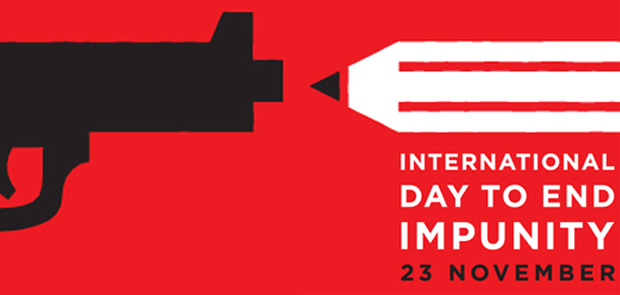
Impunity is a festering sore on freedom of the press. Harassment, violence and murder of journalists are problems around the world — even in Europe, as Index’s project mapping media violations has shown. The numbers speak for themselves: of the 370 media workers murdered in connection with their job over the past ten years, 90% have been murdered without their killers being punished. Many of these crimes aren’t even investigated.
Ahead of the International Day to End Impunity, journalists from across the world told Index why impunity is such a danger to free expression and a free press.
Kostas Vaxevanis, Greek investigative journalist, HOT DOC, and 2013 Index award winner
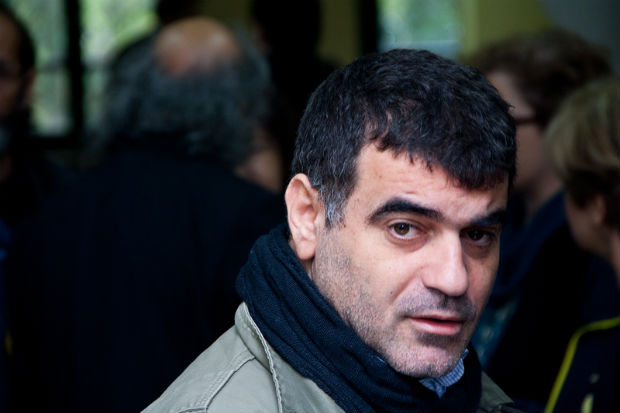
Impunity generates corruption and its enemy is the one thing that exposes and threatens it: the freedom of the press.
The HOT DOC is currently facing 40 lawsuits mainly from ministers and politicians in an attempt to shut us down as journalists. We reveal scandals like one with the minister of justice, a former judge who committed an “error” that granted amnesty to officials who had abused public funds, and instead of answering in public as required as politicians, we are being sued. We pester the courts and despite winning lawsuits, we need more than 80,000 euro per year for court expenses.
Heather Brooke, British-American journalist and 2010 Index award winner
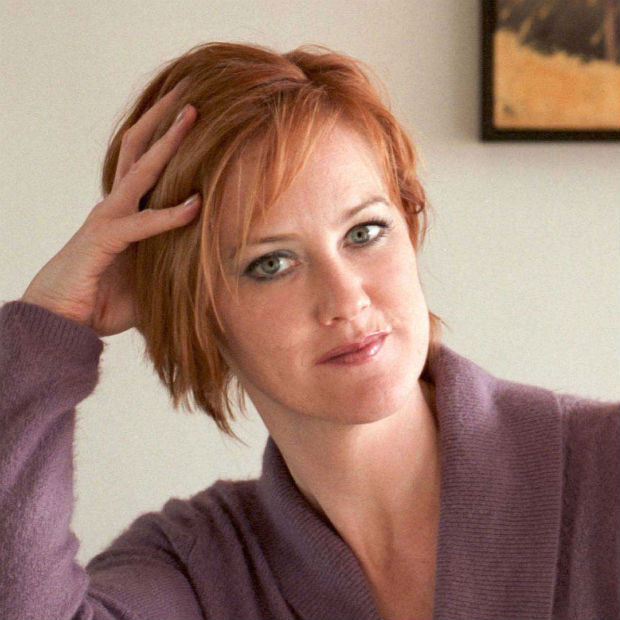
It is a problem that journalists around the world get threatened, intimidated and killed just for doing their job.
These crimes, like any other crime, need to be investigated. If not, it sends a message that this is okay; that the law is only for certain people. It is an implicit acceptance of this behaviour.
If we want to have a strong press, threats, intimidation and murder of journalists can’t be seen to be implicitly condoned by the state. It’s a dangerous message. It makes people frightened to ask tough questions, and if that happens, you are on the way to shutting down a robust press.
Kareem Amer, Egyptian blogger and 2007 Index award winner
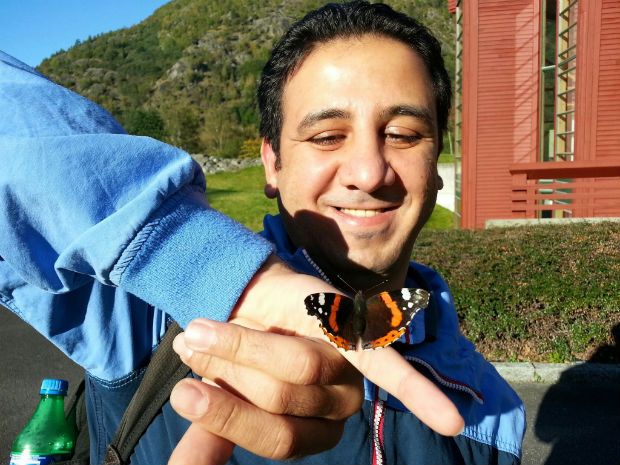
I come from a country where we have a lack of justice. The executive power controls the parliament and the justice system. People feel that if they get mistreated or oppressed by those in power nothing will protect them or bring them justice.
Not only people who express their opinions suffer from a lack of justice. People from different backgrounds who have a different way of thinking and different interests also don’t trust the justice system. Those who have more power can easily avoid punishment and take revenge against victims who tried to get their rights through judiciary system.
Officially, police officers don’t have any kind of formal immunity. According to the law they can be questioned if they violate the rights of people by torturing or murdering. But, in fact, all those accused of killing protesters and torturing prisoners managed to avoid being punished, with a few exceptions.
I feel that it’s not safe to express your opinions freely in a country where people can easily avoid punishment.
I have been sentenced to four years in jail for writing two articles and publishing them on the internet, and during that time I have been through physical violence and mistreatment committed by security forces. I reported it but no one has been questioned or punished. That made me feel that there is no justice in my country and that it is easy to be humiliated and tortured and you will not get protected, since the judiciary system is practically part of the executive power and the judges do what the authorities want them to do.
Rahim Haciyev, Azerbajiani journalist and acting editor of 2014 Index award winner Azadliq

Rahim Haciyev, deputy editor-in-chief of Azerbaijani newspaper Azadliq (Photo: Alex Brenner for Index on Censorship)
Freedom of expression is the basis of all other rights and freedoms. Free speech is something all authoritarian regimes are worried about as it threatens their existence. That is why freedom of expression is specifically targeted by authoritarian regimes. If there are no free people, there is no freedom of expression. Free speech is a precondition for journalists to be able to work in full strength and thus fulfill their functions in society. Authoritarian regimes organise permanent attacks on journalists with impunity. A free journalist armed with freedom of expression is a threat to an authoritarian regime, this is why perpetrators receive awards, not punishment for oppressing journalists’ rights. This process leads to self-censorship, and journalists stop being carriers of truthful information, which in the end affects society.
Nazeeha Saeed, award-winning Bahraini journalist, who was tortured in police custody
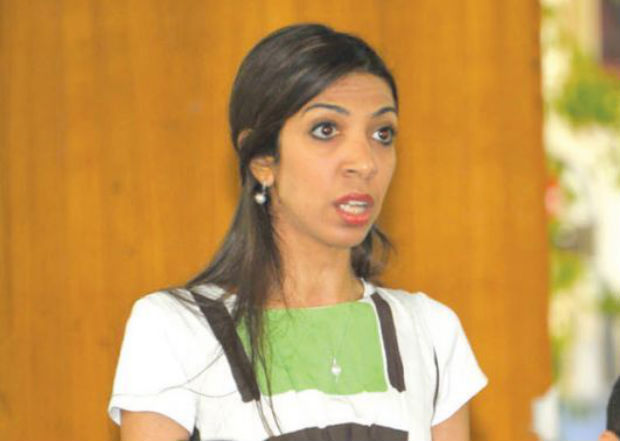
Impunity is a threat to free expression because journalists and people who report the facts on the ground will feel danger, and if no one gets punished for crimes against journalists or others it establishes a systematic impunity culture. Feeling insecure is something bad, it stops people from having a normal life, functioning and expressing themselves.
Endalk Chala, Ethiopian blogger and co-founder of the Zone9 blogging collective (of which six members are currently imprisoned for their writing)
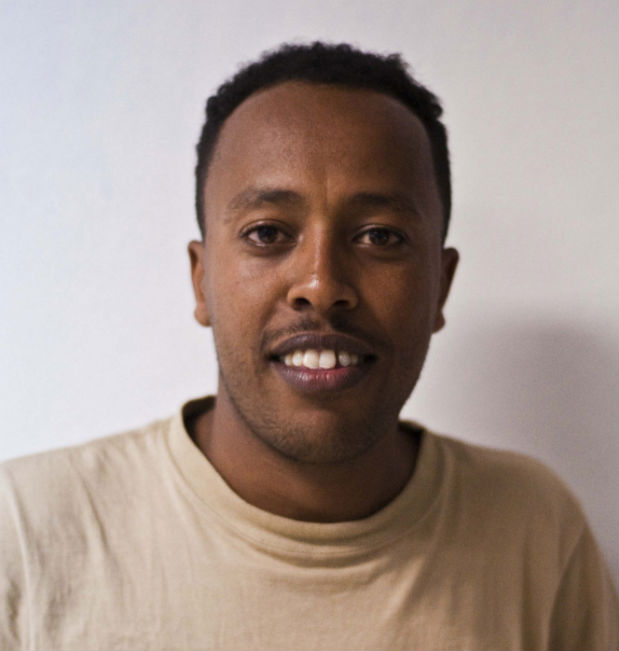
Impunity is a threat for free expression on many levels. In my experience I have seen impunity when it cultivates self-censorship. Let’s take the case of Zone9 bloggers. Since their arrest there are a lot of people who tried to visit them in prison, take a picture of them, attend their trial and tweet about their hearings but all of these have invited very bad reactions from the Ethiopian police.
Some were arrested briefly, others were beaten and it has become impossible to attend the “trial” of the bloggers and journalists. No action was taken by the Ethiopian courts against the bad actions of the police even though the bloggers have contentiously reported the kinds of harassment. As a result, people have stopped tweeting, taking pictures and writing about the bloggers. Apparently, the volume of the tweets and Facebook status updates which comes from Ethiopia has dwindled significantly. People don’t want to risk harassment because of a single tweet or a picture. This self-censorship could be attributed to impunity, which is pervasive in Ethiopia.
Impunity also causes a lack of trust in the Ethiopian judicial system. I don’t trust the independence of the Ethiopian justice system. I have never seen a police man/woman or a government authority being prosecuted for their bad actions against journalists. The Ethiopian government has been prosecuting hundreds of journalists for criminal defamation, terrorism and inciting violence but not a single government person for violating journalists’ rights. This tells you a lot about the compromised justice system of the country.
Andrei Soldatov, Russian investigative journalist and co-founder and editor of Agentura.Ru

Russia is known for its traditions of self-censorship. Despite what the laws say, the rules are explained in a quiet voice in some unmarked cabinets. Sometimes the rules are even not explained, and journalists, editors and owners of media have to constantly guess what is allowed at that moment. Not everyone is allowed to ask directly, so we are all in the game about signals sent by the authorities.
Journalists are beaten and killed in Russia, and this provides plenty of room to send such signals to the journalistic community. You don’t need to explain that investigative reporting in the North Caucasus is not allowed anymore: you just need to turn the investigation of Anna Politkovskaya’s assassination in 2006 into a show trial, where the assassins are duly found guilty, but the question of masterminds is never answered. You could be sure, the signal would be taken correctly.
Fergal Keane, Irish journalist, BBC foreign correspondent and 2003 Index award winner
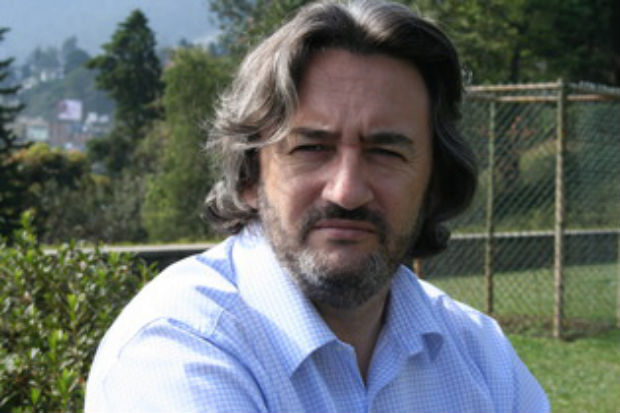
Impunity allows the enemies of free speech to threaten, torture and kill journalists secure in the knowledge they will never be called to account. I can’t think of a greater threat.
Veran Matic, B92 board of directors chairman and B92 news editor-in-chief
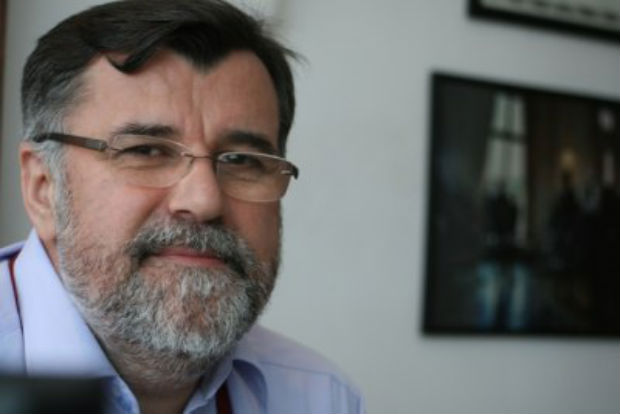
In my 25 years of experience in Serbia, I have been editor-in-chief of a media outlet that was banned on several occasions and I have been arrested.
Impunity directly encourages and expands violence towards journalists. The culture of producing fear is the most efficient form of censorship. One unsolved murder creates space for implementing the next one without any threat for the executioners. In the meantime, the media gets killed/eliminated in the process.
The lack of discontinuity with Slobodan Milosevic’s authoritarian regime had left room for impunity to remain intact.
Less than two years ago, I decided to make a kind of a breakthrough when it comes to impunity. I proposed the establishment of a mixed commission composed of journalists, members of the police and members of the security information agency. We managed to bring the 1999 murder of Slavko Curuvija to a phase where official indictment was brought, along with arrest of all suspects in this murder case. The 2001 murder of our colleague Milan Pantic is also in the final stage of investigation. A 1994 assassination — of Dada Vujasinovic — is being reviewed by the National Forensic Institute from The Hague because local institutions have compromised themselves in this case.
In the same way as impunity restricts freedom of speech, solving of these cases, at least 20 years later, will surely contribute to journalists being encouraged to do their job in the best possible way. Of course, I am not counting here on the new problems with which journalists and media face, and that call for finding new models of financing high quality journalism for the sake of public interest, worldwide.
The team behind Pao-Pao, a Chinese website focusing on internet freedom issues
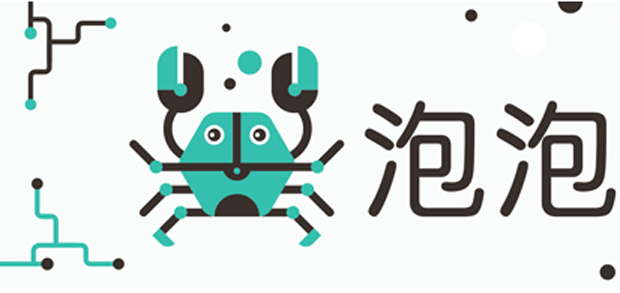
This year, we have seen a rising number of Chinese journalists, academics and human rights lawyers detained, threatened and arrested simply for speaking out online. While Chinese regulations on freedom of speech need to be closely examined, tech companies also play an important role in the deterioration of freedom of speech in China.
While Chinese tech companies are under the tight control of the Chinese authorities, there exists a culture of impunity in the western tech companies, especially when they are doing business in China. When we worked with our partner GreatFire to launch a FreeWeibo iOS application last year (an app to deliver uncensored content from Weibo, the largest social media platform in China), Apple decided to remove the app from their Chinese iTunes store. The only reason given was that Apple received a request from the Chinese authorities. This June, LinkedIn censored user posts deemed sensitive by the Chinese government on the global level, far beyond Beijing’s censorship requirement, even though LinkedIn does not have servers in China.
It would be the start of the end if these global tech companies start removing content simply because they do not want to upset their business relationships with China. It is crucial to hold these companies accountable for their behaviour. Otherwise it will further erode freedom of expression, not only for China, but also for the whole world.
The International Day to End Impunity was set up in 2011 by free speech network IFEX, of which Index on Censorship is a member, with the aim of demanding accountability and justice on behalf of those “targeted for exercising their right to freedom of expression”.
This article was originally posted on 21 November 2014 at indexoncensorship.org. It was updated at 14:09, 24 November to include the response from Pao-Pao.
















